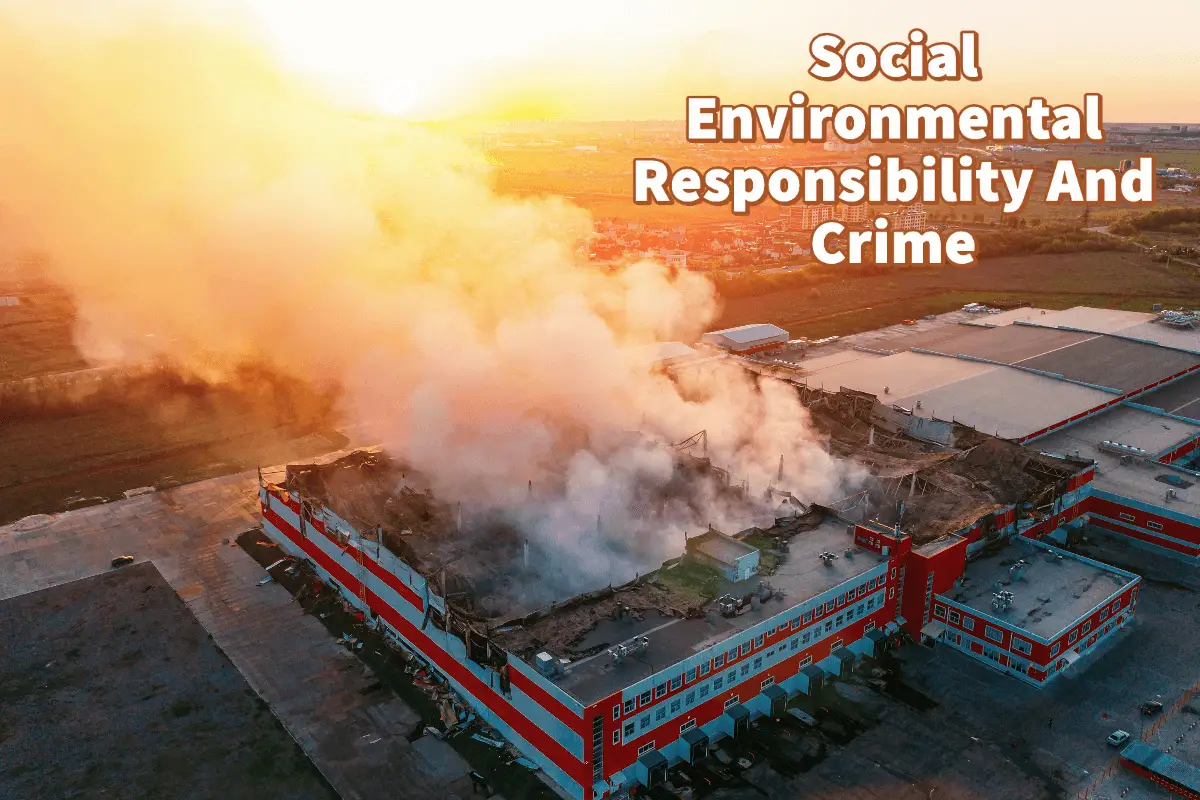Today, there is a lot of talk about companies and their social and environmental responsibility. When a company does not have a social-environmental commitment, many people ask, is this a criminal act?
The lack of social-environmental responsibility is when a corporation, company, or brand cares about society and the environment. Companies, corporations, and brands that do not have this policy in place and later have social or environmental issues could also be criminally responsible for their actions or lack of activities.
Table of Contents
- What Is Corporate Social Environmental Responsibility Policy?
- Social Environmental Responsibility And Criminal Acts
- 10 Reasons Corporate Social Environmental Responsibility Can Tackle Crime And Elevate Lives
- 1. Investing in Education:
- 2. Job Creation:
- 3. Community Programs:
- 4. Infrastructure Development:
- 5. Environmental Initiatives Reduce Desperation:
- 6. Promotion of Fair Trade:
- 7. Substance Abuse Rehabilitation:
- 8. Advocacy and Awareness:
- 9. Economic Redistribution:
- 10. Collaboration with Law Enforcement:
- Frequently Asked Question
- Related Content
What Is Corporate Social Environmental Responsibility Policy?
A corporate social-environmental responsibility policy is when a corporation, company, or brand will ensure that the products they produce do not harm society in any way and that they have environmental policies in place. In other words, a corporation or a company is not just concerned about profits but also society and the environment.
Recent research has shown that many consumers want to buy from companies, corporations, and brands that care about society and the environment. Many feel that companies should be more transparent to show the consumers what they are doing to help humanity and the environment.
Here are the thing that people want to see a company has as their social and environmental responsibility:
- A company is actively working to reduce its carbon footprint.
- A company is improving its social and environmental policies, including those throughout the global supply chain.
- A company is participating in fair trade and ethical sourcing practices.
- A company that believes in diversity, equity, and inclusion for all members of society.
- A company that has charitable global giving policies in place.
- A company that believes in and encourages community service and volunteering.
- A company that has policies in place to protect and improve the environment.
- A company that does not just care about profits but also makes conscious social and environmental investments.
Overwhelmingly, generation X and millennials feel that our global society and protecting the environment are two important factors that all companies, corporations, and brands should consider.
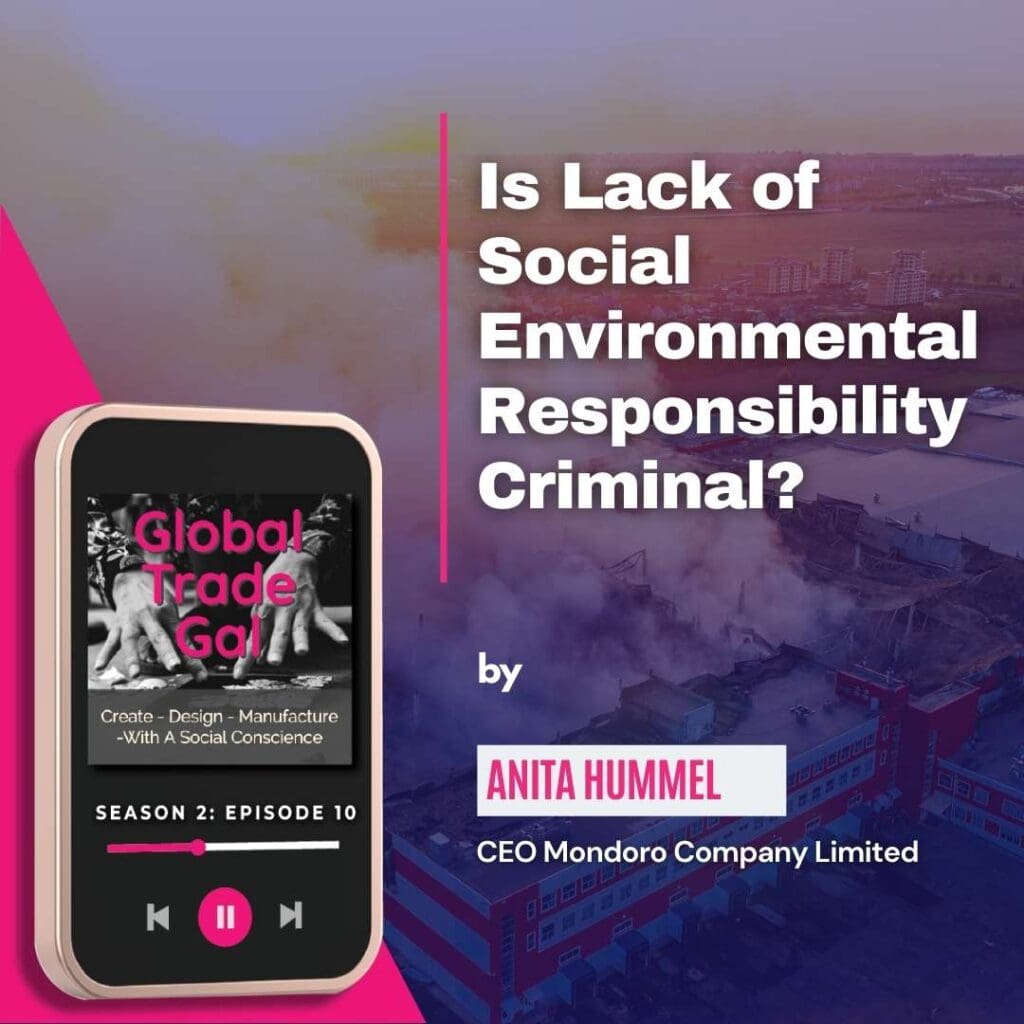
Listen To Our Podcast Is Lack of Social Environmental Responsibility Criminal? Below or by clicking here.
Social Environmental Responsibility And Criminal Acts
The question that many companies and individuals have been asking themself is, when a company lacks social responsibility, is that criminal? When does it become criminal for a company, corporation, or brand not to have a social-environmental policy?
In other words, is a company, corporation, or brand responsible for society and the environment? Is a lack of corporate social and environmental responsibility a criminal act or a moral matter?
Should companies, corporations, and brands police themselves to ensure that they have social-environmental responsibilities in place, or should it become a government issue?
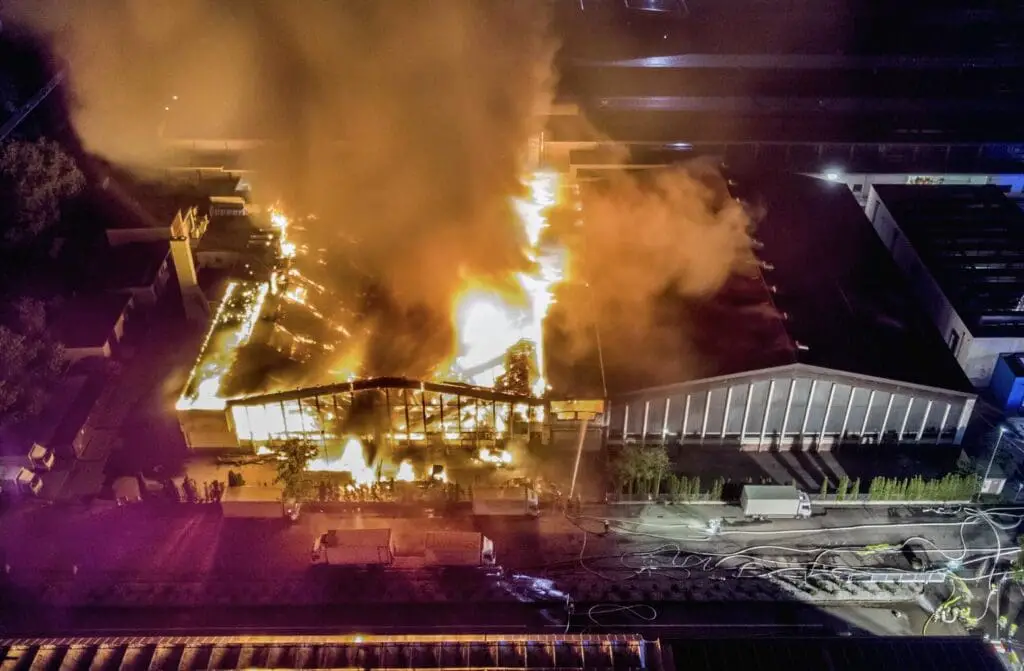
These are questions that many people are asking. Research shows that consumers want to know that the companies, brands, and corporations they support care about the environment and others.
Below are ways a company’s lack of Social Environmental Responsibility is morally wrong and criminal.
This is not a complete list, but just ways that not having corporate social and environmental responsibility can border a criminal act.
- A company does not care about the environment but knowingly dumps waste in waters and riverways worldwide. This criminal act destroys wildlife and usually damages the surrounding soils and areas. In turn, it drives those near the waste sites into poverty and can cause harm to their health.
- A company that participates in or uses wood from illegal or indiscriminate logging. One of the significant causes of deforestation worldwide is illegal or indiscriminate logging. A side effect of indiscriminate or illegal logging is land erosion, which can cause floods to sweep entire villages. Land erosion can also damage crops, livestock, houses, and deaths.
- A company that does not seek out ways to manage electronic waste. For example, a developed country has up to 50,000,000 tons of electronic waste annually. This includes computers, TV sets, mobile phones, and appliances. And many of these are not properly managed, so they go into landfills or other waste dumps or, worse, get exported to a Third World country and placed there. A responsible company would want to know where and how their electronic waste is being managed.
- A company that does not care about enslaved persons or child labor but only cares about the product’s price. A few years ago, the Cocoa industry got caught in having child laborers work on the Cocoa plantations on the worldwide cocoa they purchased. This forced the chocolate companies to have a policy to ensure that no child labor was used to produce the cocoa used in their chocolate.
- A company that does not worry about global ethical sourcing throughout their entire supply chain: ethical sourcing is all about understanding what all the players in your global supply chain are doing to help society and the environment. A company that does not care about ethical sourcing can knowingly or unknowingly help participate in social and environmental issues in another part of the world. In other words, just because you don’t see or know about something does not make you not responsible.
- A company that does not care about social or political issues and will not take a stand on them. With the Russian invasion of Ukraine, we have seen how public support for Ukraine and their right to freedom forced many major international companies, corporations, and brands to take a stand.
The truth is that companies today need to be concerned with not only what is happening in their own offices but also what is happening throughout their entire global supply chain. Consumers demand that companies share responsibility in the entire process and have transparency for their global supply chain.
A Lesson From The 2012 Dhaka Garment Factory Fire
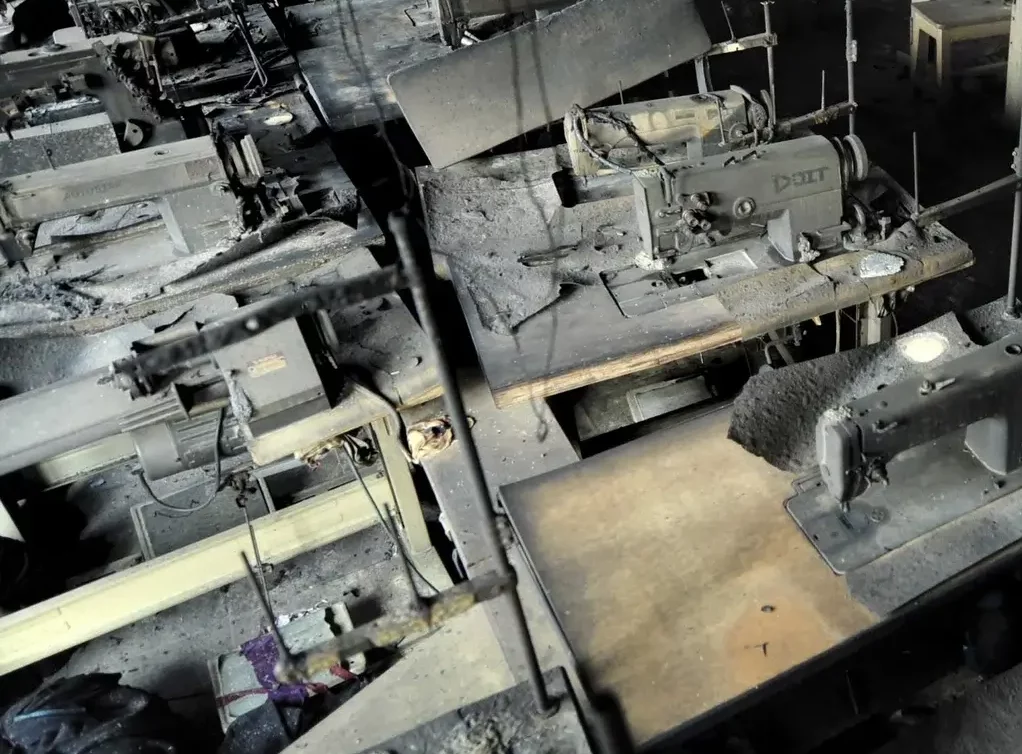
We can all learn from the 2012 Dhaka Garment factory fire that broke out and killed over 115 workers. The factory opened in 2009 and employed 1630 workers; they made T-shirts, polo shirts, and jackets and included products for various companies and organizations, including Walmart, Carrefour, and IKEA.
After the fire broke out and killed all the workers, Walmart was criticized for working with a factory with such poor safety and other standards, allowing so many workers to die and be injured.
It was discovered that in 2011, the factory was flagged as a code “orange” for ethical sourcing safety conditions violations. Walmart knew about this violation but continued to work with the factory.
Walmart took a massive public relations hit for the fire even though Walmart tried to claim they did not know about this factory as it was a subcontractor for another factory. Many saw Walmart’s response as a way to try to pass the buck to someone else.
In my experience, if the factory were shipping containers directly to Walmart, then there would have been Walmart-assigned inspectors checking all the productions before they shipped out to Walmart, and those inspectors would have been very familiar with the factory.
The lesson every company can learn from this tragic Dhaka fire is to understand their entire global supply chain, as issues can come back to hurt you in the future. Companies must also pick and choose a responsible partner to work with, especially when dealing with the global supply chain.
10 Reasons Corporate Social Environmental Responsibility Can Tackle Crime And Elevate Lives
Corporate Social Environmental Responsibility (CSER) has evolved beyond being a buzzword. With a heightened global focus on sustainability and social equity, businesses are realizing that their impact extends beyond profit margins.
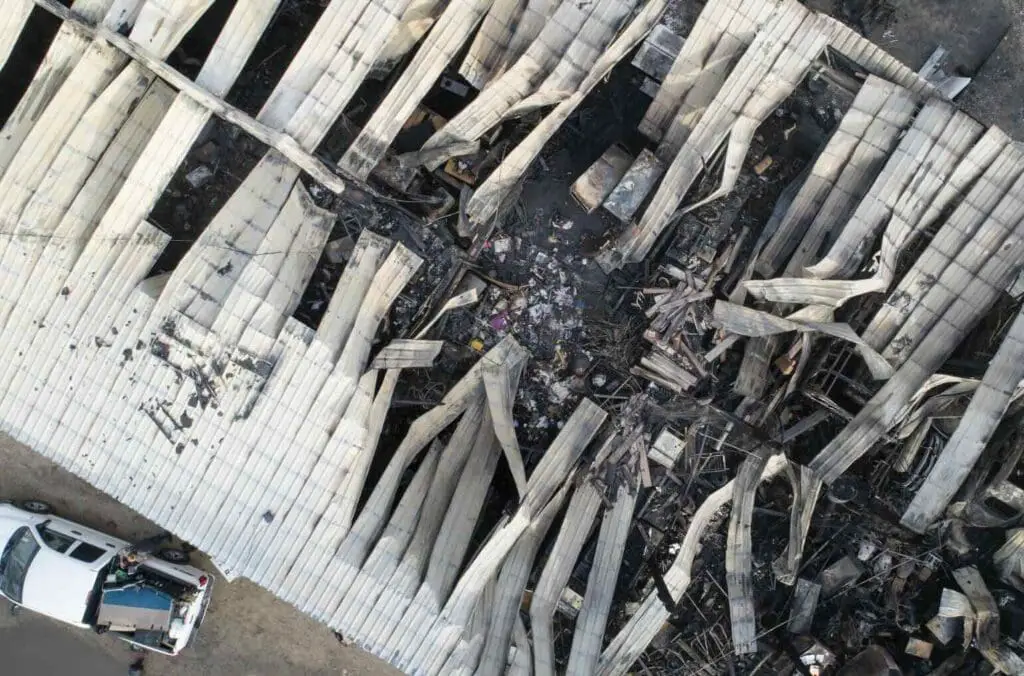
Here, we delve into how CSER can play a pivotal role in addressing crime and uplifting community lives.
1. Investing in Education:
Corporations can sponsor educational programs, giving marginalized individuals better access to quality education. Education often deters crime, equipping individuals with skills and opportunities to pursue legitimate careers.
2. Job Creation:
By focusing on sustainable and socially responsible projects, corporations can create new job opportunities, especially in impoverished areas. Employment boosts local economies and reduces the likelihood of individuals resorting to crime out of desperation.
3. Community Programs:
Through CSER initiatives, companies can fund and organize community outreach programs. These programs can offer mentorships, counseling, and skill training, diverting at-risk youth from criminal activities.
4. Infrastructure Development:
A part of CSER can be dedicated to developing public infrastructures like lighting in crime-prone areas or creating safe community spaces. Improved infrastructure can act as a deterrent to crime and promote community cohesion.
5. Environmental Initiatives Reduce Desperation:
By investing in environmental sustainability, corporations can mitigate the impacts of climate change, which often exacerbate resource scarcity and conflict. When communities have access to resources, the rate of crime driven by desperation often decreases.
6. Promotion of Fair Trade:
Corporations can commit to sourcing products ethically. By doing so, they ensure that workers are paid fairly and work in safe conditions, reducing the economic inequalities that often contribute to crime.
7. Substance Abuse Rehabilitation:
Through CSER, corporations can fund and support rehabilitation centers and programs, offering a path to recovery for those entangled in substance-related crimes.
8. Advocacy and Awareness:
Corporations wield significant influence. They can use this power to raise awareness about the root causes of crime and rally support for preventive measures, pushing for systemic changes at policy levels.
9. Economic Redistribution:
By contributing a portion of their profits to uplift marginalized communities, corporations can help level the economic playing field. Economic stability in households can lead to decreased crime rates.
10. Collaboration with Law Enforcement:
Through CSER initiatives, corporations can collaborate with law enforcement agencies, offering resources, technology, and expertise to enhance their crime-fighting capabilities.
The intersection of Corporate Social Environmental Responsibility and societal well-being is evident. By proactively engaging in CSER initiatives, businesses can create ripples of positive change, curbing crime and enhancing the quality of life for countless individuals.
As global citizens, corporations have the power and the moral obligation to contribute to a safer and more equitable world.
If you are interested in seeing how Mondoro can help you ethically source and manufacture home decor and home furnishing products – we would love to talk to you to see how we can help you.
Find out more about how Mondoro can help you create, develop, and manufacture excellent home decor and home furniture products – don’t hesitate to contact me, Anita. Check out my email by clicking here or become a part of our community and join our newsletter by clicking here.
Mondoro gives out a FREE Lookbook to anyone interested. You can receive a copy of our latest Lookbook by clicking here.
Listen to our Podcast called Global Trade Gal. You can find it on all major podcast platforms. Try out to listen to one of our podcasts by clicking here.
Subscribe to our Mondoro Company Limited YouTube Channel filled with great videos and information by clicking here.
Frequently Asked Question
What is social environmental responsibility?
Social environmental responsibility refers to a company’s commitment to operate in an environmentally sustainable manner while considering the social impact of its actions.
Why is social environmental responsibility important for a company?
Social environmental responsibility is important for a company because it helps protect the environment, enhance the company’s reputation, attract environmentally conscious customers, and contribute to long-term sustainability.
How can a company demonstrate its commitment to social environmental responsibility?
A company can demonstrate its commitment to social environmental responsibility by implementing sustainable practices, reducing its carbon footprint, supporting renewable energy sources, minimizing waste generation, and engaging in community initiatives.
How does environmental damage impact society?
Environmental damage can have significant negative impacts on society. It can lead to the depletion of natural resources, pollution of air, water, and soil, loss of biodiversity, and disruption of ecosystems, which can affect human health, livelihoods, and overall quality of life.
How does environmental damage relate to an increase in crime?
Environmental damage can lead to an increase in crime as people may lose their jobs due to the closure of environmentally harmful industries. Unemployment and economic distress can contribute to social unrest and crime rates.
How can companies help prevent environmental damage and reduce crime rates?
Companies can contribute to the prevention of environmental damage by adopting sustainable practices, investing in clean technologies, supporting environmental conservation initiatives, and creating job opportunities in eco-friendly industries.
What are the benefits of sustainable business practices?
Sustainable business practices help protect the environment, conserve resources, reduce costs through improved efficiency, enhance brand reputation, attract socially responsible investors, and contribute to long-term profitability.
Related Content
Social Environmental Responsibility Fights Social Challenges
What is apparent to me and many others is that how an individual, company, or brand looks at their social, environmental responsibility matters in today’s world. Companies today need to balance their needs for profits with the ecosystem, poverty, environment, and climate change.
You can discover more by reading Social Environmental Responsibility Fights Social Challenges by clicking here.
How Social Environmental Responsibility Helps Fight Poverty
Social Environmental responsibility is about a company having social responsibility while also being concerned about their environmental impact. A Social Environmental Responsible company will look at profits and benefit society while being responsible towards the environment.
To find out more about How Social Environmental Responsibility Helps Fight Poverty by clicking here.

